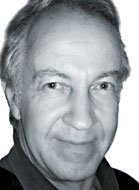 Germany may be among favourites to win Euro 2012 but not everyone has their attention focused on the NationalElf’s attempt to land a fourth European crown but a first since 1996.
Germany may be among favourites to win Euro 2012 but not everyone has their attention focused on the NationalElf’s attempt to land a fourth European crown but a first since 1996.
A sideshow on the sidelines has developed with a war of words between Theo Zwanziger and Uli Hoeness.
Zwanziger is the lawyer who was ousted earlier this year as German federation president and has found a ‘safe haven’ piloting one of the FIFA reform task forces; Hoeness is the president of Bayern Munich whose outspoken leadership has frequently found him at odds with the leaders of the national and international game.
Hoeness has been branded as “in danger of becoming a clown” by Zwanziger after his latest derisory salvo at the FIFA executive committee member whose reform role involves a major review of the world federation’s statutes.
Issues under his consideration, Zwanziger told Congress last month, include the future (or lack of it) of the British vice-presidency, the composition of the International Board (half British), age and term limits for committee members and an appointments vetting procedure.
However, the only direct governance change FIFA agreed concerning its structure saw the co-opting of a woman for the first time on to the executive committee. Everything else is up for discussion and many of those issues may not make it to a vote next year.
It was this lack of apparent progress which prompted the latest outburst from Hoeness.
He told the German Association of Investigative Journalists that too many FIFA decisions “over the past 10 or 15 years” had not been taken with proper concern for the good of the game; that very little had been achieved in the last year; and that the major European federations might need to threaten a World Cup boycott to enforce major change within FIFA.
Zwanziger, claimed Hoeness, had been “fooled” by FIFA president Sepp Blatter into believing that he could achieve more than he really could. Hoeness also suggested that Zwanziger’s status within FIFA had been significantly weakened by his loss of authority within the German domestic game.
He said: “I’m sure Dr Zwanziger works there with the best of intentions but because he does not have the DFB behind him he lacks any real power. I’ve heard we should not to expect too much from him.”
It would be unfair, thought Hoeness waspishly, to describe Zwanziger as “a lame duck” because his command of English was “not good enough for him to understand” the phrase.
Zwanziger, who has been succeeded as DFB president by former ceo Wolfgang Niersbach, was not amused. This was by far from being the first personal attack he has suffered from Hoeness.
“I find these statements both crude and hurtful,” said Zwanziger. “Uli Hoeness, I believe very strongly, must be careful that, with his many outbursts, he does not come to be as seen as some sort of clown.
“He appears to have a very limited view of things. Clearly he has not noticed the changes within FIFA we have made in recent months and which will be completed at the next Congress in 2013.”
And the language issue? – “I think my command of English is sufficient for my work.”
No argument here . . . considering that Zwanziger’s reform work involves reducing whatever British influence remains within FIFA.






